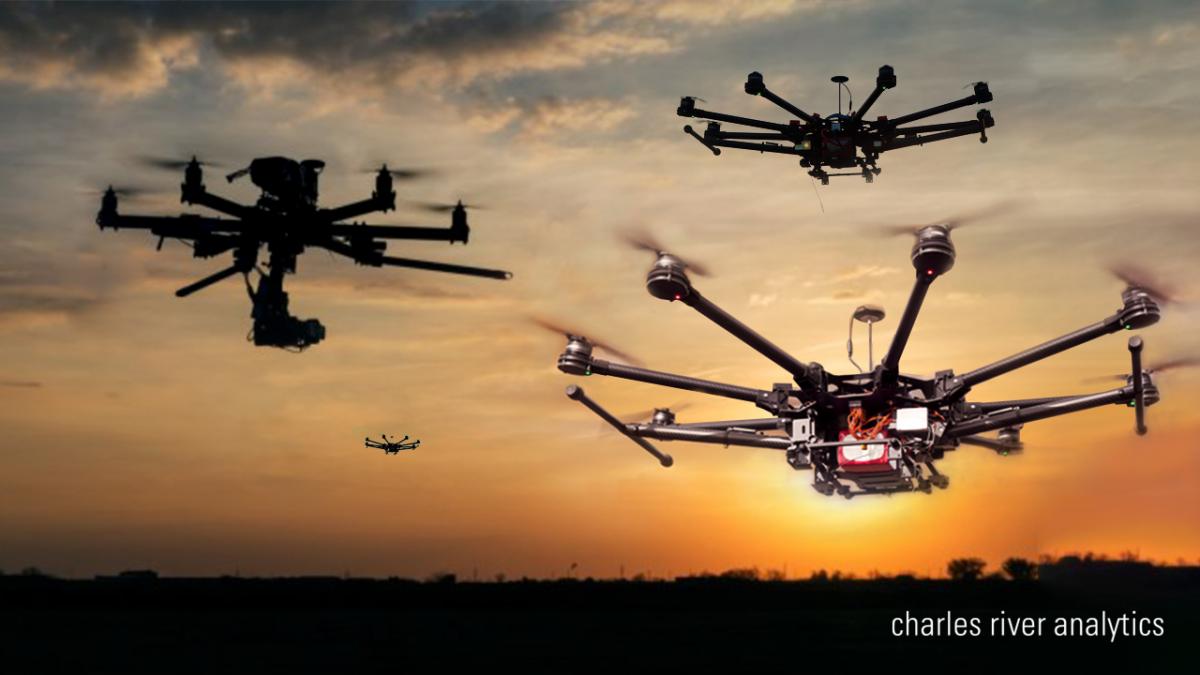Charles River Analytics Inc., developer of intelligent systems solutions, has received funding from DARPA under the OFFensive Swarm-Enabled Tactics (OFFSET) program to develop Meta-Reinforcement Learning Innovation for Robust Swarm Tactics (MERLIN-RST). MERLIN applies a meta-reinforcement learning approach to discover and learn novel swarm tactics.
Through biology-inspired algorithms and deep machine learning, tactics in the OFFSET program help swarms achieve and adapt to mission objectives. However, human programmers cannot support the evolution of these tactics quickly or accurately enough—numerous variants in adversary strategy and evolving environments make manual development a challenge that may lead to system failures or brittle tactics.
“MERLIN explores a rich, complex, and unpredictable search space that describes the many possible forms a tactic can take and automatically optimize it to a wide range of mission goals,” said Michael Harradon, Senior Scientist at Charles River Analytics and Principal Investigator on the MERLIN effort. “We’re laying the groundwork for a highly flexible design process that can dramatically improve swarm effectiveness.”
Under the MERLIN effort, we are augmenting OFFSET simulators to model swarm performance in a wide range of challenging urban environments as part of the OFFSET Program’s Fourth Swarm Sprint. MERLIN builds on our recent successes under the OFFSET program. With SATURN, we developed capabilities that give heterogeneous swarms of unlimited size resilient behavior while achieving mission objectives. Our EUROPA effort helps operators better control swarms in urban operations by providing novel, multimodal user interfaces tailored to tactical operational environments.
Our OFFSET participation complements other techniques and applications we have developed to support autonomous and unmanned systems, such as the MINOTAUR interface for controlling robotic leader-follower systems, the AMPT framework for supervising unmanned vehicles, and the CROWSNEST maritime traffic awareness solution for an unmanned surface vessel.
Our deep understanding of applied robotics and autonomy is the result of extensive research and development across many disciplines, such as artificial intelligence, machine learning, cognitive science, and human factors. Our decades of experience deploying our solutions into the field uniquely positions us to provide mature and tailored solutions for our customers’ needs.
Contact us to learn more about MERLIN and our other Unmanned Systems capabilities.
This material is based upon work supported by the Defense Advanced Research Projects Agency (DARPA) under Contract No. HR001119C0116. Any opinions, findings and conclusions or recommendations expressed in this material are those of the author(s) and do not necessarily reflect the views of the Defense Advanced Research Projects Agency (DARPA). Distribution Statement “A” (Approved for Public Release, Distribution Unlimited.





